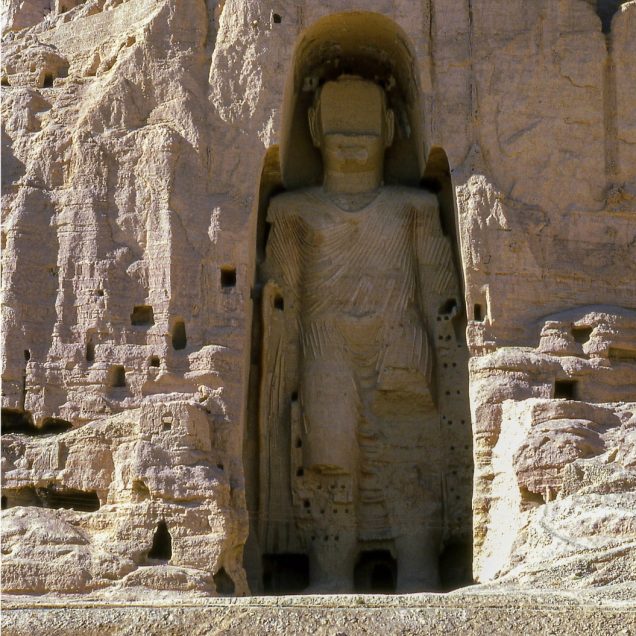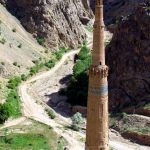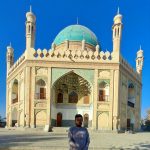Bamyan is in central Afghanistan. It is at an altitude of about 8,366 feet (2,550 m) above sea level. The Bamyan Airport is located in the middle of the city. The driving distance between Bamyan and Kabul in the southeast is approximately 180 kilometres (110 mi). The Band-e-Amir National Park is to the west, about a half-hour drive from the city of Bamyan. The Bamyan valley marked the most westerly point of Buddhist expansion and was a crucial hub of trade for much of the second millennium CE. It was a place where East met West and its archaeology reveals a blend of Greek, Turkic, Persian, Chinese, and Indian influences. The valley is one of Afghanistan's most touristic places. Bamyan is referred to by some as the "Shining Light" and "Valley of Gods". There are several tourist attractions near the city, including the Buddhas of Bamyan, which were carved into cliffs on the north side of Bamyan city in the 6th and 7th century CE, dating them to the Hephthalite rule. Other attractions close to the city include Shahr-e Gholghola and Zuhak. In 2008, Bamyan was found to be the home of the world's oldest oil paintings. At the end of the 10th century, there was a Buddhist culture in which several thousand Buddhist monks lived in caves carved into the mountain. The 53 meters known as the Salsal and 35 meters known as Shahmama are the high-standing Buddha statues and best-known monuments left by the Buddhists.Furthermore, there are several cultural sites left from both the Buddhist and the later Islamic era of the valley. The city of Bamyan joined the UNESCO Creative Cities Network as a Crafts and Folk Art city in 2017. "UNESCO noted the Bamiyan Valley is the most monumental expression of western Buddhism".
Bamyan or Shining Light
Tour details
- Location Center of Afghanistan
- Time Zone UTC +4:30
- Elevation 2250 m
- Climate AF
- Total Area 18029.2 km2
- Population (2023) 61863
- Main Ethnic Group Hazara
- Language Persian
- Popular Food Bulani, shirbrenj
- Hotels that We Use Nurbandqala, Shahi



